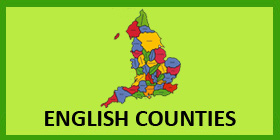




Back to the Definitely All Romans calendar



The breakaway idea was pretty infectious because in 293AD Carausius (not John), who was admiral of the Channel Fleet seized
Britannia and northern Gaul (France). He had some support, minted his own coins and started to build an efficient administration, appointing officials and trying
to persuade Rome to recognise him. However seven months later his efficiency collapsed and so did he as he was assassinated by his treasurer Allectus. Allectus
then started to build forts on the south coast to stop Celtic attacks and also had a palace built specially for him in London. Me thinks he may have been slightly
careless when looking after the money when at the treasury.
Meanwhile, over in Rome, they had cottoned on to the fact that ruling such a large area was too much for one man and now had four emperors, each with
specific areas to control. Maximillian (obviously Max to his friends) sent his junior Constantius Chlorus to reclaim Britain. This Constantius did and he
defeated and killed Allectus at a battle near Silchester.
 Four being the “in” number, Constantius then divided Britannia
into four separate provinces. These were known as Maxima Caesariensis, Britannia Prima, Flavia Caesariensis and Britannia Secunda. Their capitals were at
London (4), Cirencester (3), Lincoln (2) and York (1). As you can see from the map Province of Maxima Caesariensis was the most southerly region of Britannia.
The Province of Britannia Prima covered the south west of Britannia and the Province of Flavia Caesariensis was the middle part of the country. The rest of the
country was the Province of Britannia Secunda.
Four being the “in” number, Constantius then divided Britannia
into four separate provinces. These were known as Maxima Caesariensis, Britannia Prima, Flavia Caesariensis and Britannia Secunda. Their capitals were at
London (4), Cirencester (3), Lincoln (2) and York (1). As you can see from the map Province of Maxima Caesariensis was the most southerly region of Britannia.
The Province of Britannia Prima covered the south west of Britannia and the Province of Flavia Caesariensis was the middle part of the country. The rest of the
country was the Province of Britannia Secunda.
Prima means first in Latin and secunda means second so the names of those two provinces were easy to understand and I apologise to all of you in the
north who, yet again, were viewed as second-best by the Romans. The other two provinces were probably named after a guy called Flavius and one called Maximus as
their Latin names mean the caesarian province of Flavius and Maximus respectively. Latin was like quite a few other languages which actually change the ending of
the name depending on what part of the sentence it is. I lived in Poland for a couple of years and if you wanted to say “Richard owns the house” it would be
Richard posiada dom in Polish but if you say it’s Richard’s house it would be dom Richarda and I would have an a on the end. Latin was the same so his name was
Flavius but if it was something named after him it would be Flavia.
Forward to 304AD

